A man of rare simplicity, outstanding intellect, and great wisdom.
Widely referred to as the ‘People’s President’, The ‘Missile Man of India’ , Dr. A. P. J. Abdul Kalam was born on 15 October 1931 to a Tamil Muslim family in the pilgrimage center of Rameswaram on Pamban Island, then in the Madras Presidency and now in the State of Tamil Nadu. His father Jainulabdeen was a boat owner and imam of a local mosque; his mother Ashiamma was a housewife.
Dr. Kalam was the youngest of four brothers and one sister in his family. His ancestors had been wealthy traders and landowners, with numerous properties and large tracts of land. Their business had involved trading groceries between the mainland and the island and to and from Sri Lanka, as well as ferrying pilgrims between the mainland and Pamban. As a result, the family acquired the title of ‘Mara Kalam Iyakkivar’ (wooden boat steerers), which over the years became shortened to ‘Marakier.’ With the opening of the Pamban Bridge to the mainland in 1914, however, the businesses failed and the family fortune and properties were lost over time, apart from the ancestral home. By his early childhood, Kalam’s family had become poor; at an early age, he sold newspapers to supplement his family’s income.
In his school years, Kalam had average grades but was described as a bright and hardworking student who had a strong desire to learn. He spent hours on his studies, especially mathematics. After completing his education at the Schwartz Higher Secondary School, Ramanathapuram, Kalam went on to attend Saint Joseph’s College, Tiruchirappalli, then affiliated with the University of Madras, from where he graduated in physics in 1954. He moved to Madras in 1955 to study aerospace engineering in Madras Institute of Technology. While Kalam was working on a senior class project, the Dean was dissatisfied with his lack of progress and threatened to revoke his scholarship unless the project was finished within the next three days. Kalam met the deadline, impressing the Dean, who later said to him, “I was putting you under stress and asking you to meet a difficult deadline”. He narrowly missed achieving his dream of becoming a fighter pilot, as he placed ninth in qualifiers, and only eight positions were available in the IAF.
He spent the next four decades as a scientist and science administrator, mainly at the Defence Research and Development Organisation (DRDO) and Indian Space Research Organisation (ISRO) and was intimately involved in India’s civilian space program and military missile development efforts. He thus came to be known as the Missile Man of India for his work on the development of ballistic missile and launch vehicle technology. He also played a pivotal organizational, technical, and political role in India’s Pokhran-II nuclear tests in 1998, the first since the original nuclear test by India in 1974. Dr. Kalam received honorary doctorates from more than 40 national and international universities during his lifetime.
Dr. Kalam was elected as the 11th President of India in 2002 with the support of both the ruling Bharatiya Janata Party and the then-opposition Indian National Congress. Widely referred to as the “People’s President”, he returned to his civilian life of education, writing and public service after a single term. The Government of India honoured him with the Padma Bhushan in 1981 and the Padma Vibhushan in 1990 for his work with ISRO and DRDO and his role as a scientific advisor to the Government. In 1997, Kalam received India’s highest civilian honour, the Bharat Ratna, for his contribution to the scientific research and modernization of defence technology in India.
A man of rare simplicity, outstanding intellect, and great wisdom Dr Kalam often preached the virtues of hard work and grit that he believed had held him in good stead over his own life. Here we’ve collected some of the inspiring quotes from his autobiography and other books written by and about him.
Book - Wings Of Fire Author - A. P. J. Abdul Kalam Publisher - Orient Blackswan Price - INR 399/-
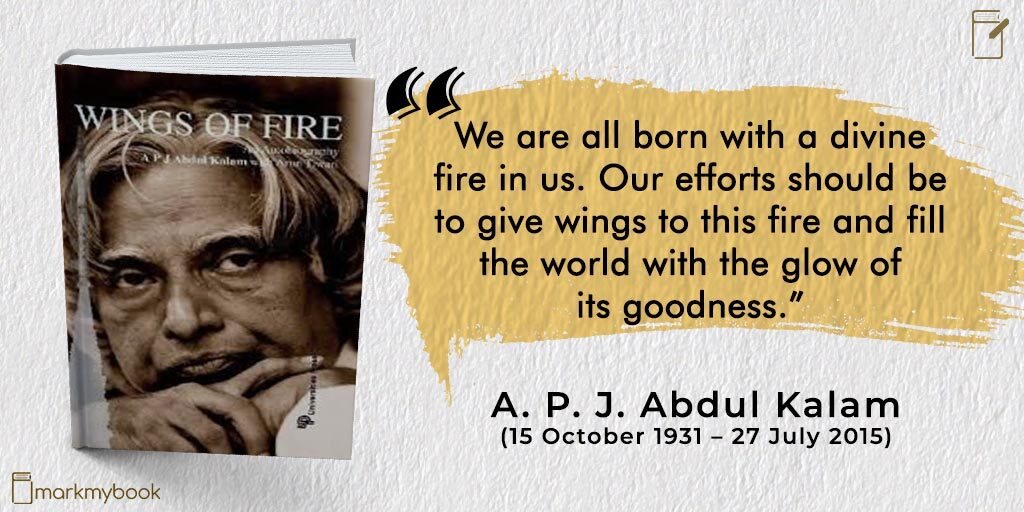
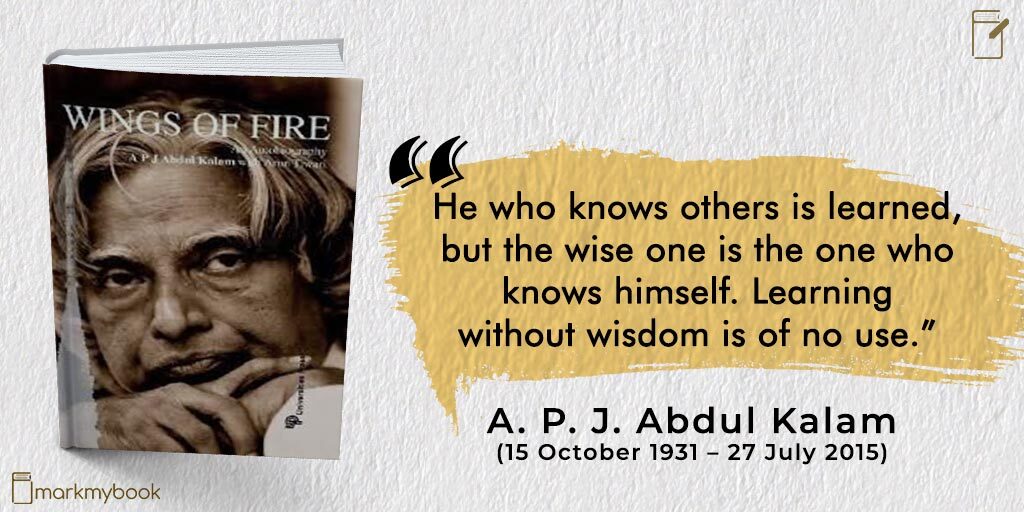
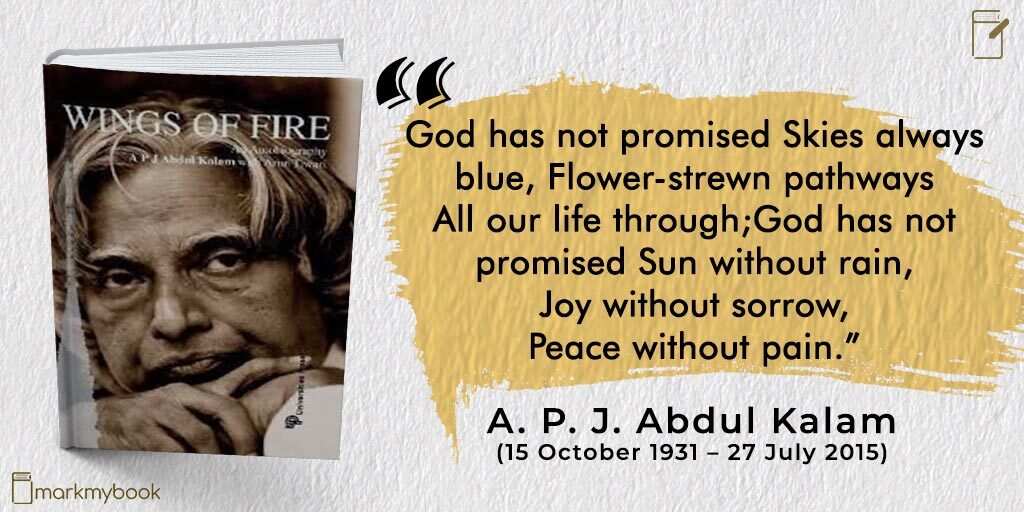
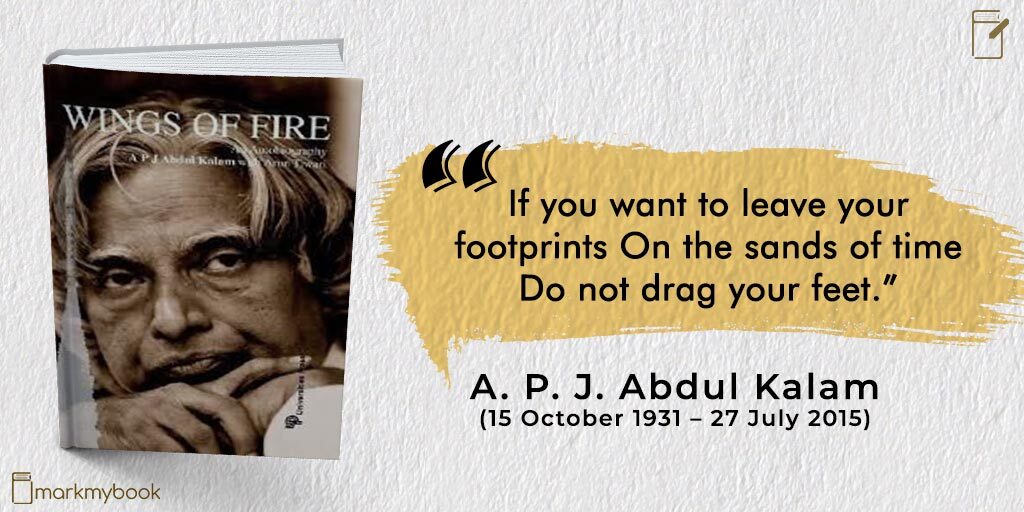
Book - Ignited Minds Author - A. P. J. Abdul Kalam Publisher - Penguin Random House Price - INR 199/-
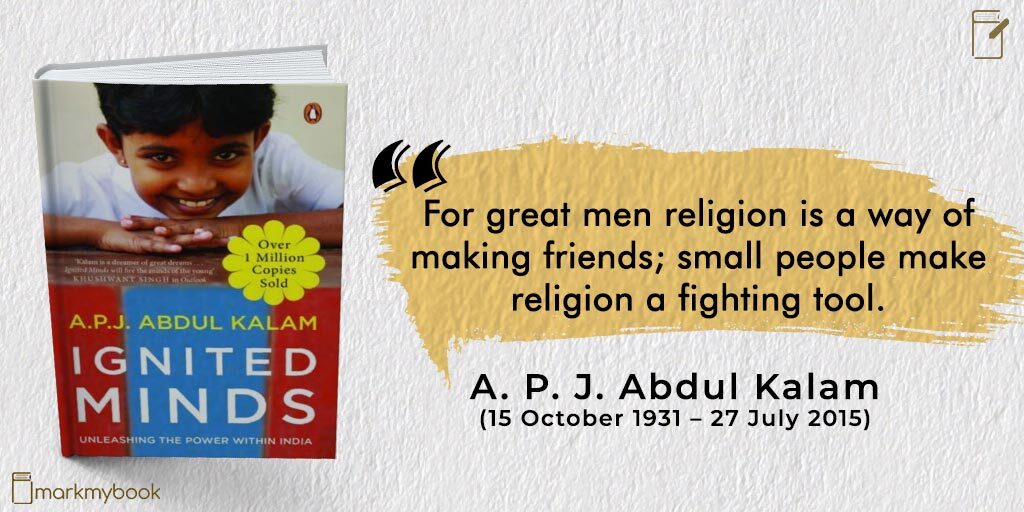
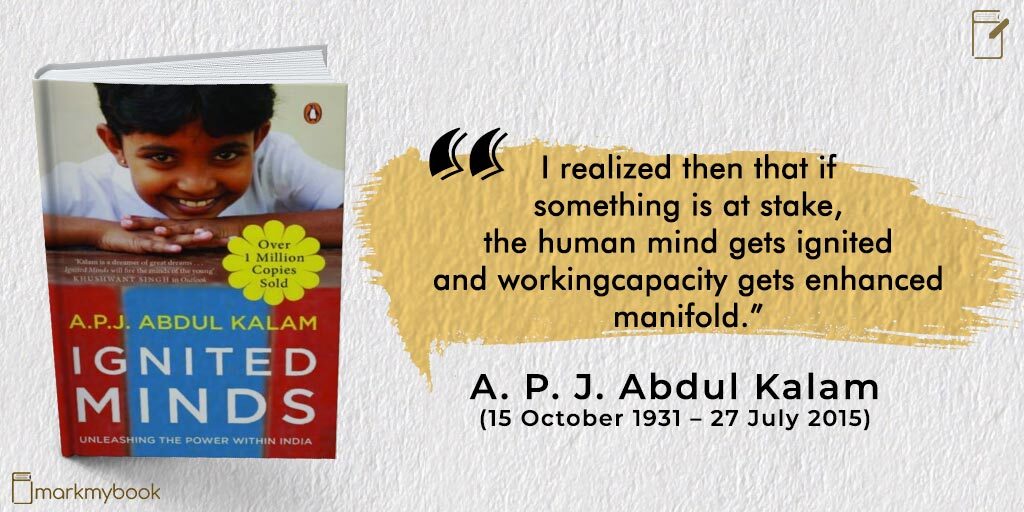
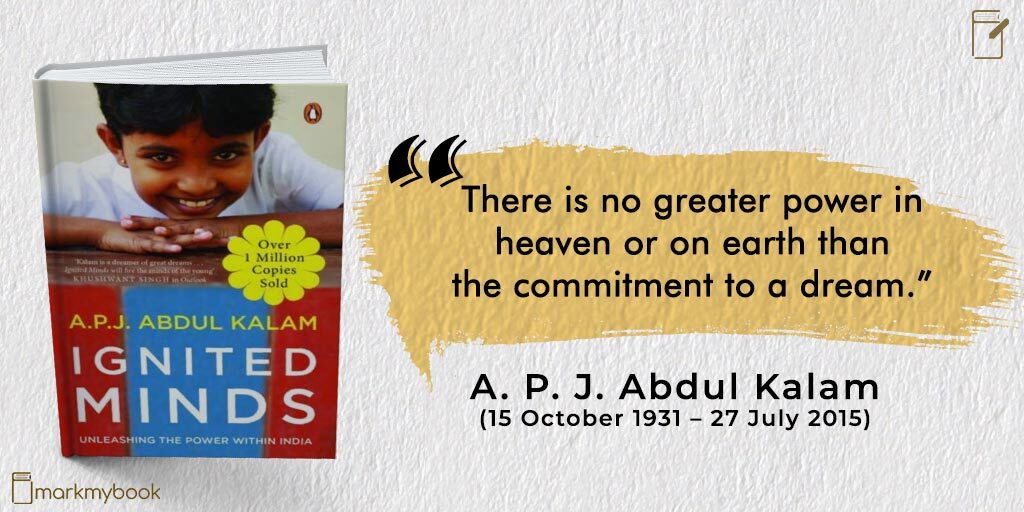
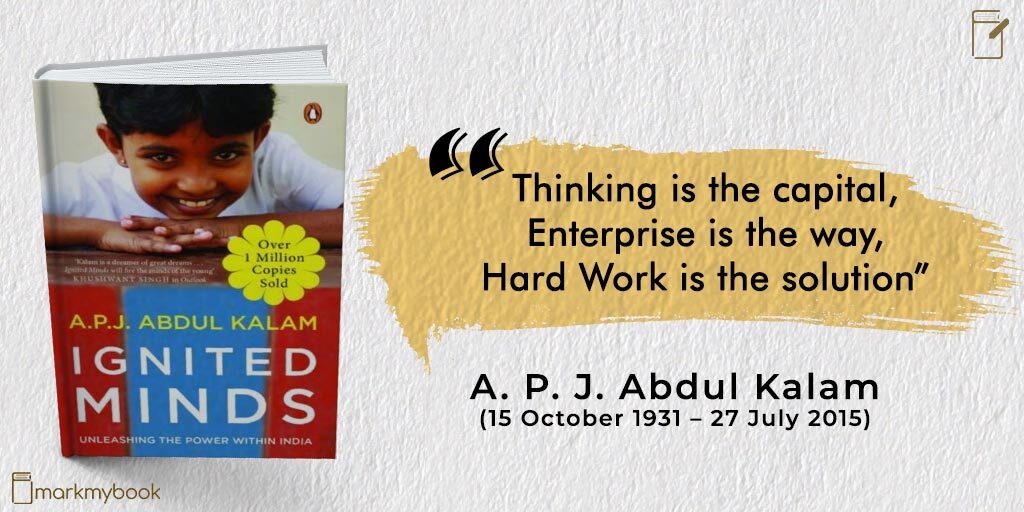
Book - Inspiring Thoughts Author- A. P. J. Abdul Kalam Publisher - Rajpal & Sons Price - INR 175/-
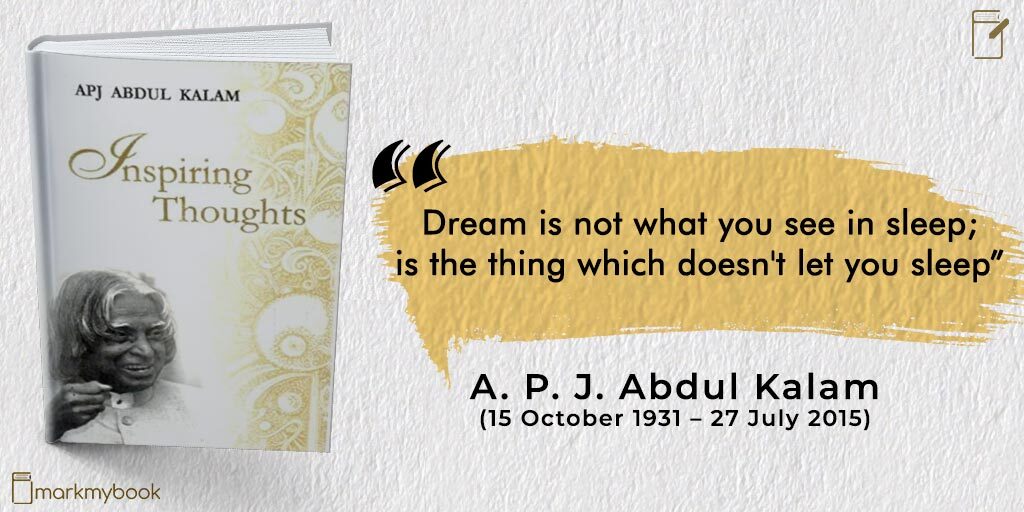
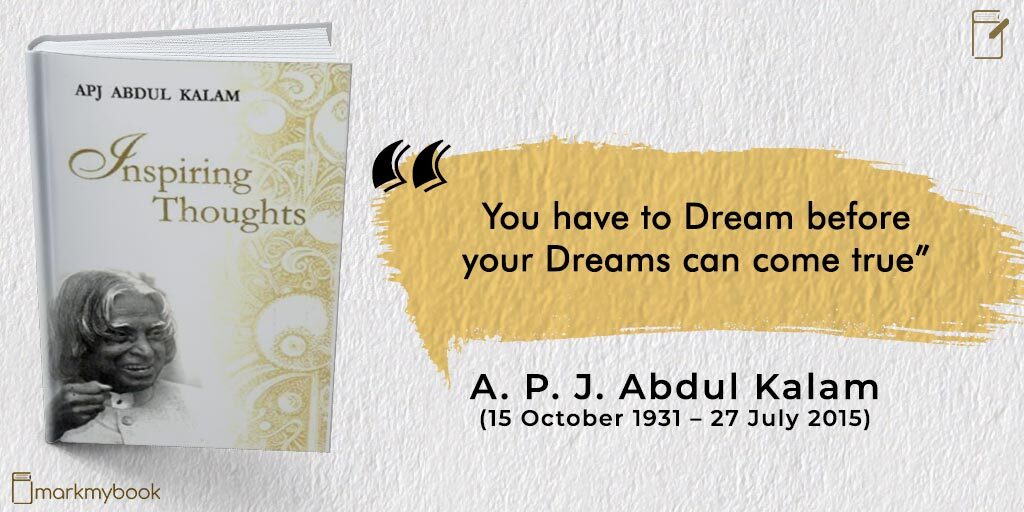
Book - Indomitable Spirit Author - A. P. J. Abdul Kalam Publisher - Rajpal & Sons Price - INR 295/-
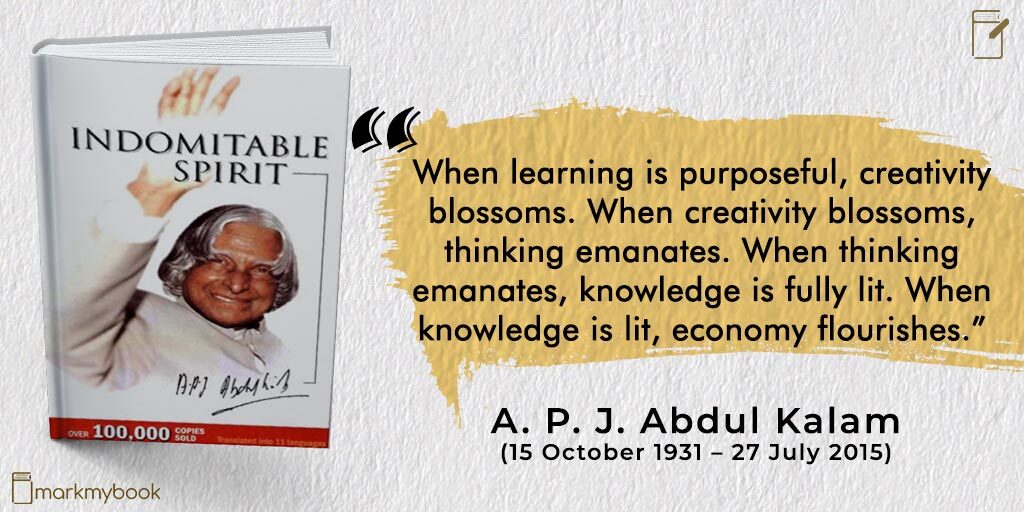
When creativity blossoms, thinking emanates.
When thinking emanates, knowledge is fully lit.
When knowledge is lit, economy flourishes.”
While delivering a lecture at the Indian Institute of Management Shillong, Kalam collapsed and died from an apparent cardiac arrest on 27 July 2015, aged 83. Following his death, Kalam received numerous tributes.
The Tamil Nadu state government announced that his birthday, 15 October, would be observed across the state as “Youth Renaissance Day;” the state government further instituted the “Dr. A.P.J. Abdul Kalam Award,” constituting an 8-gram gold medal, a certificate and ₹500,000 (US$7,000). It is awarded annually on Independence Day, beginning in 2015, to residents of the state with achievements in promoting scientific growth, the humanities, or the welfare of students.
Researchers at the NASA Jet Propulsion Laboratory (JPL), had discovered a new bacterium on the filters of the International Space Station (ISS) and named it Solibacillus kalamii to honour the late president Dr A.P.J. Abdul Kalam.
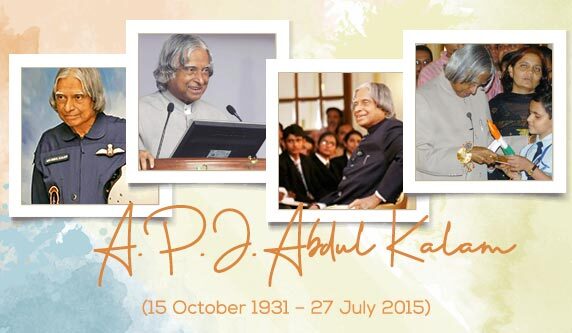

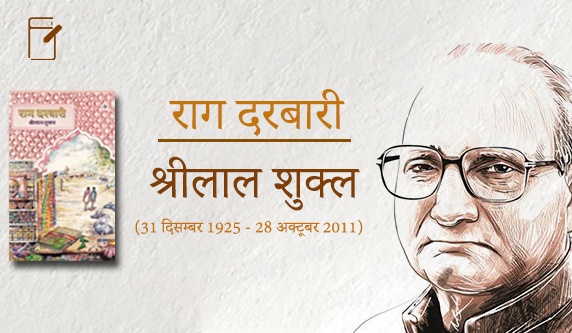
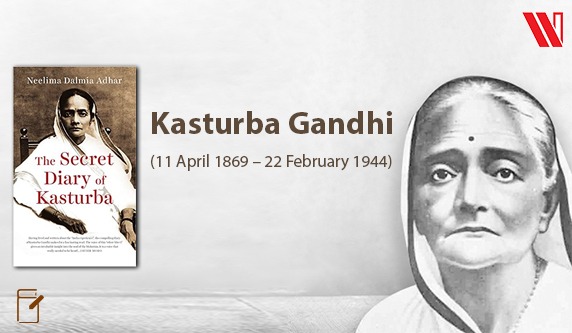

No Comments